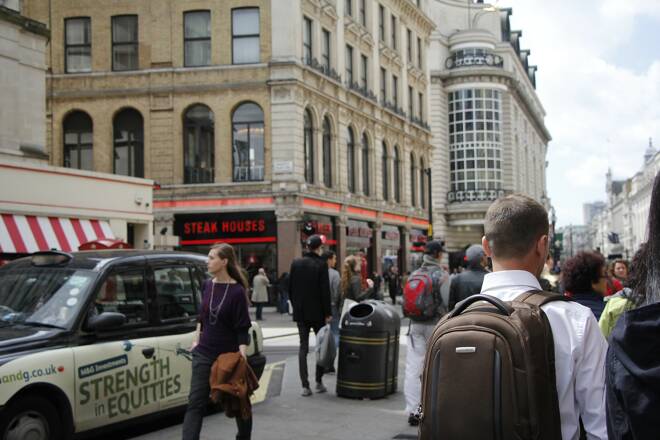Advertisement
Advertisement
UK Unemployment Falls in Second Quarter, Pound Rebounds on Major Currencies
By:
Official figures in the UK have shown that between April and June this year, unemployment declined by 52,000, leaving the employment rate as a the
Official figures in the UK have shown that between April and June this year, unemployment declined by 52,000, leaving the employment rate as a the proportion of people aged from 16 to 64 who were in work at 74.5%, the highest since comparable records began forty five years ago in 1971.
There were 31.75 million people in work, a total of 172,000 more than for January to March 2016, and 606,000 more than for the second quarter a year ago, the total of those who are unemployed and currently seeking new positions is now 1.64 million, 4.9% of the population down from 5.6% year on year, the last time it was lower than that figure was for July to September 2005, way before the financial crash.
Other significant figures include a rise in the self employed by 257,000, the total number of those who have started businesses has reached 4.79 million, and now incorporates 15.1% of the entire labour force.
Referring to ‘Brexit’, the amount of non UK workers who were now working in the UK has risen to 2.23 million, which leapt upwards by 238,000 in the second quarter, observers will be keeping a close eye on that total before and certainly after the triggering of Article 50, which will begin the legal process of leaving the European Union (EU).
‘Brexit’ does not appear to have damaged the UK jobs market in the initial aftermath of the UK’s decision to leave the EU, as the jobseeker’s claimant allowance count has been reduced by 8,600 in July, in what is a turnaround from the rise that many analysts were expecting, with some anticipating a spike of up to 9,500.
This will be welcome news for the UK economy as a whole, which has suffered a deluge of negative news about its current position and future prospects since ‘Brexit’.
There was also a boost on average weekly earnings for UK employees in nominal terms, as this increased by 2.4%, including bonuses and by 2.3% excluding bonuses compared with a year earlier.
The pound in reaction to the unemployment figures has persisted in its climb on the US dollar, with the GBP/USD rate peaking this morning at $1.305, in a continuation from yesterday with the rise in UK inflation to 0.6%, and the mixed messages that are coming out of the United States. However, GBP/USD retreats and trading around 1.30.
The Bureau of Labor statistics revealed that the latest Consumer Price Index was unchanged for July, after there was an increase of 0.2% in June, New York federal member John Williams that a rate hike could come as early as September, this was reiterated by San Francisco Federal Reserve President John Williams, who believed that it is likely that inflation would edge higher.
Against the euro, the pound has been in a similar pattern as to its relationship with the greenback, the GBP/EUR rose to a height of 1.158 euros, a rise from 1.147 euros midway through yesterday morning.
About the Author
Peter Tabernerauthor
Advertisement
